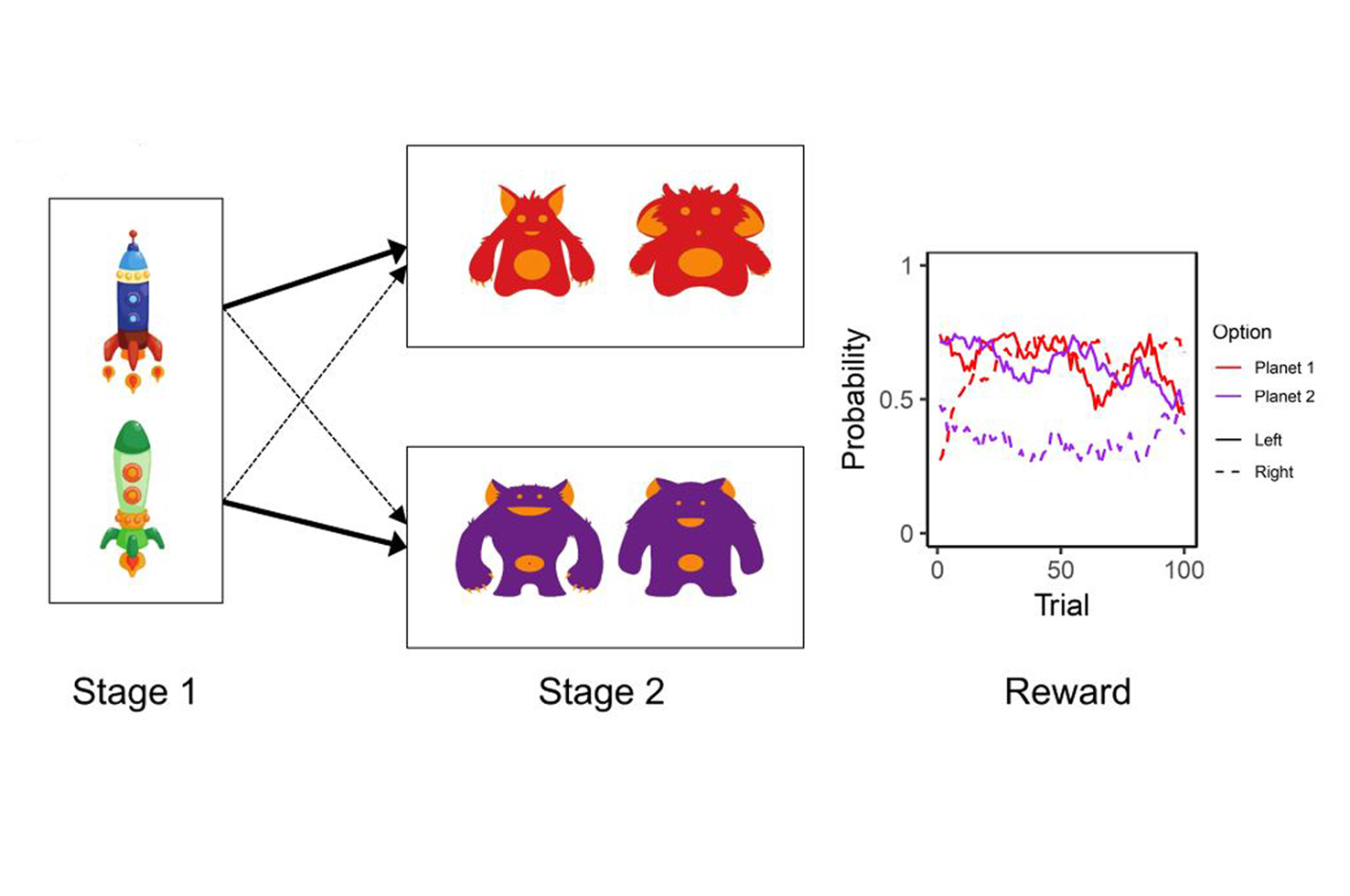New Research in Biological Psychiatry: Cognitive Neuroscience and Neuroimaging—The Reliability of Model-Based Planning in Measuring Decision-Making Processes

To identify neurocognitive mechanisms of mood and anxiety disorders, scientists are increasingly employing computational models to map latent decision-making processes onto dissociable neural substrates and clinical phenotypes. However, the reliability of measures used in research in this area up to now has been unclear.
In a study recently published in Biological Psychiatry: Cognitive Neuroscience and Neuroimaging, Pitt Psychiatry researchers including Rebecca Price, PhD, and postdoctoral scholar Vanessa Brown, PhD, assessed the reliability of computational models, focusing on model-based planning (which, prior research suggests, specifically relates to the transdiagnostic psychiatric symptom of compulsivity) to measure decision-making processes. Study participants in a primary sample comprised individuals between the ages of 18 to 55 with compulsive symptoms. Comparative data was drawn from three additional, publicly available datasets. Participants in the primary sample completed 100 trials of a two-step reward task. The investigators then used multiple techniques to remove problematic data before employing generative and non-generative model-based planning to assess how reward, and its interaction with transition type (progression through task stages, a measure of model-based planning), affected choice.
“Linking neurocomputational models to clinical symptoms, such as showing how compulsivity is characterized by reduced model-based control, is needed to advance our understanding and treatment of psychiatric disorders,” said Dr. Brown, the study’s first author. “However, most methods used in this type of research vary from lab to lab and haven’t been systematically assessed for reliability.”
The investigators studied whether model-based planning from a reinforcement learning task determines the best reliability—and if so, what methods will best achieve this reliability. Their findings confirmed the strength of these reliability measures for clinical research.
“In this impressive set of analyses, Vanessa took on the behemoth task of thoroughly exploring the analysis choices that researchers make and systematically quantifying their impact on the reliability of a widely-used computational measure,” said senior author Dr. Price “This is something that researchers rarely take the time to do, but as Vanessa convincingly shows, it is absolutely essential to improving both the validity and the potential clinical impact of findings.”
Improving the Reliability of Computational Analyses: Model-Based Planning and Its Relationship with Compulsivity
Brown VM, Chen J, Gillan CM, Price RB.
Biological Psychiatry: Cognitive Neuroscience and Neuroimaging Vol. 5, Issue 6, June 2020. https://doi.org/10.1016/j.bpsc.2019.12.019
